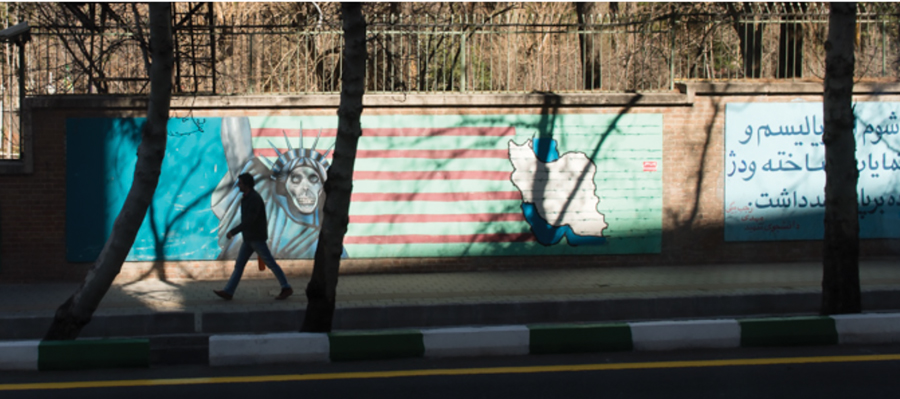The first group of American business leaders to step inside the former U.S Embassy in Tehran in more than 35 years discover a very different world to what we’ve heard about.
“Where are you from?” asked the shopkeeper, pointing quizzically at American Dick Simon, who was on his first trip to Iran. Simon swallowed hard and replied, “I’m from the United States.”
“America!” said the shopkeeper, giving him a huge bear hug, “We’ve been waiting for you for 30 years!” It was typical of the attitude from all ages and walks of life that Dick and his party encountered. They experienced almost no anti-American or anti-Western sentiment from the people they met, even the Iranian Revolutionary Guards who were tasked with showing them around.
The 2012 film “Argo,” starring Ben Affleck and George Clooney, dealt with the American hostage crisis that began on 4 November 1979, when Iranian activists stormed the U.S. embassy in Tehran in retaliation for President Jimmy Carter giving the Shah asylum in the U.S. during the Iranian Revolution. More than 50 of the embassy staff were taken hostage and the entire movie is a nail-biting quest to smuggle them out at any cost.
But now, the Americans are back.
Curious about the portrayal of Iran in Western media and not discouraged by the endless images of crowds burning American flags and chanting for the fall of “The Great Satan,” a group of 24 members of the Young President’s Organization (YPO) traveled to the country to see for themselves. Simon is one of the founders of the Peace Action Network within YPO; an example of a growing trend among business leaders wanting to help promote global peace.
“We are all fed information through media news outlets and stereotypic characterization in TV shows and movies about what the rest of the world is like and what we should think about it,” says Simon. “Dehumanizing the ‘other,’ THEMification, is a widespread and dangerous human trait.”

Governments can sometimes be their own worst enemy, by reinforcing myths and beliefs around different societies. “One of the big lies that people believe is that conflict between certain groups will never end,” says Simon. “Northern Ireland was once a war zone. Rwanda recovered from a genocide of over a million people. South Africa could easily have descended into retributory bloodshed after democracy, but didn’t.”
“The most dangerous four-letter word in the English language is THEM,” says Simon. “It creates the ‘other’ and creates a situation where you’re unable to hear them. Part of our brain actually cuts off rational thought in order to ‘protect’ us.” Entrepreneurs who dissect problems into manageable pieces can play an important role in building peace. “Business leaders have the expertise to resolve problems,” says Simon. “It’s called making a deal – and business is very good at this.”
In Iran, Simon’s group met with high-ranking Iranian officials, the first group of American business leaders to do so since the 1979 Islamic Revolution. They met a Grand Ayatollah at his personal residence in the holy city of Qom and interacted freely with ordinary Iranians – free of media filters, Hollywood hype and western rhetoric. Seventy percent of the population is under 35 and 60 percent of all university graduates are women. “We will never look at Iran, the Middle East or the world the same way again,” he says.
“War is a very expensive business. Witness the horrific Syrian death toll and refugee crisis happening right now,” says Simon. “We should get involved with other cultures out of a desire to make a difference in the world and enlighten ourselves.”
Perhaps the most telling detail of Simon’s trip was when he departed Tehran Imam Khomeini International Airport. A Revolutionary Guard saw his American passport, approached him and said, “God Bless You.” Bestowing a blessing on another, despite cultural, religious and geopolitical differences, might be the best sign yet that we can all find common ground.




































